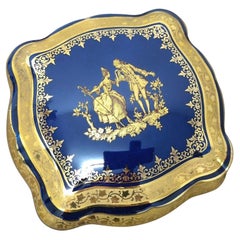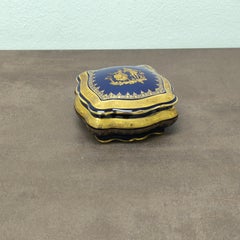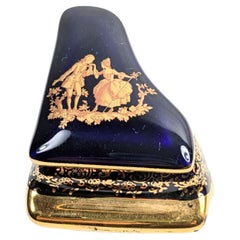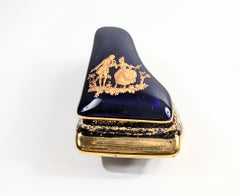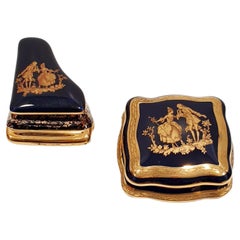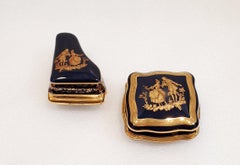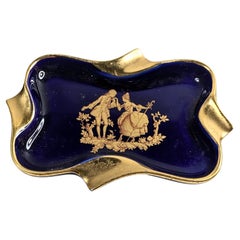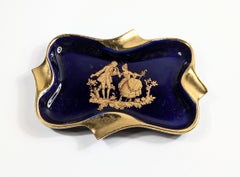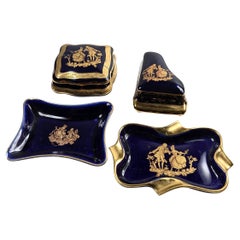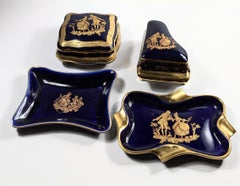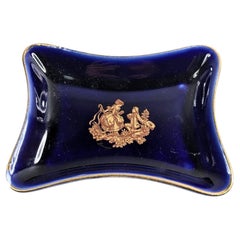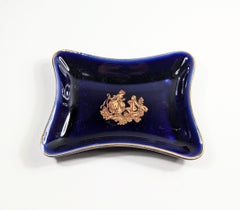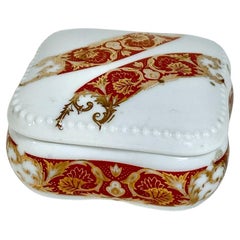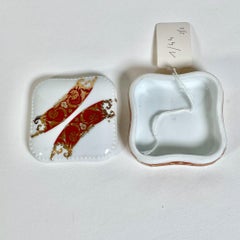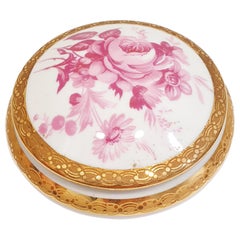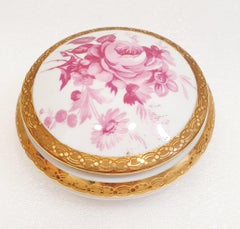Limoges porcelain has withstood the test of time for centuries. The widely cherished ceramics named for the French city and commune in which they are made are synonymous with sophistication, elegance and refinement. Today, antique Limoges dinnerware, serveware, decorative objects and other porcelain products are coveted and collected all over the world.
The story of Limoges porcelain, which refers to porcelain made in the Limoges region of France — not by a specific factory — begins in 1768. The region is a rich source of kaolin, feldspar and quartz — vital ingredients to the production of this type of pottery.
Porcelain was first made in China and spread all over the world owing to the trade routes to the Far East established by Dutch and Portuguese merchants. Given its origin, English speakers called porcelain “fine china,” an expression you still might hear today. "Fine" indeed — for over a thousand years, it has been a highly sought-after material. Meissen Porcelain (Staatliche Porzellan-Manufaktur Meissen), which was founded in the Electorate of Saxony (now Germany), is one of the preeminent porcelain factories in Europe and was the first to produce true porcelain outside of Asia.
Limoges porcelain refers to porcelain produced in and near the city of Limoges — it does not refer to a specific manufacturer — and it’s distinctive for its luminous hue and bright white qualities, providing an ideal canvas for intricately detailed hand-painted decorations. (Revered Impressionist painter Pierre-Auguste Renoir began his career painting plates in Limoges.)
It wasn’t long before Limoges porcelain captured the attention of King Louis XVI — the region’s first manufactory, established toward the close of the 18th century, was placed under the protection of the King’s brother, the Comte d’Artois. It was later purchased by the King and became Manufacture Royale de Limoges. The facility produced a variety of pieces, including delicate, gold-embellished trinket boxes, ornamental vessels, Rococo-style figurines and elaborate dinnerware service sets.
Following the end of the French Revolution in 1794, Limoges porcelain was no longer restricted, and the commercial porcelain industry ballooned.
By 1819, Limoges had four porcelain factories, and as demand for porcelain grew during the 19th century, the industry expanded in the French city. In 1853, American businessman David Haviland opened the Haviland & Co. factory in Limoges to export porcelain to the United States. The company produced several iconic serveware collections for many American presidents, including Abraham Lincoln, Ulysses S. Grant and Rutherford B. Hayes. Bernardaud opened in the early 1860s.
By 1900, Limoges had 35 factories, which employed close to 8,000 workers. In 1925, Limoges porcelain was shown at the International Exhibition of Modern Decorative and Industrial Arts — the design fair in Paris that brought global attention to the Art Deco style — where it garnered international acclaim.
During the 20th century, Limoges factories such as Bernardaud collaborated with a range of notable artists and designers, including Franz Bischoff, Joan Miró, Raymond Loewy, Alexander Calder and Julian Schnabel, to name a few.
Today, authentic Limoges porcelain tableware, vases and objets d’art continue to gain renown with collectors and design lovers all over the world.
Find an extensive collection of antique Limoges porcelain on 1stDibs.
Antique, vintage and new decorative boxes will safely store items while adding a splash of color or texture to a corner in any room. They have had a range of purposes over the years — from trinkets to serving as useful receptacles, such as snuff boxes, jewelry boxes and more. Boxes have also been designed in a range of forms and styles.
Box making is a craft dating back thousands of years. Early boxes as decorative objects were regularly designed and decorated both inside and out, ranging from minimal looks to more flashy styles. Decorative boxes have been constructed from different materials, with wood and metal being the most common. Wood is widely available and versatile, with woodworkers able to carve complex designs or showcase its natural grain.
Some antique jewelry boxes were made with tortoiseshell, mother-of-pearl, ivory and even porcupine quills, such as those created by the Anishinabe in Canada and the United States. In Sri Lanka, well-crafted boxes were inlaid with porcupine quills and ivory discs between ebony bands. Chinese sewing boxes and tea boxes made of black lacquer were popular in Europe during the late 18th and early 19th centuries. These often featured gold-painted designs or landscape scenes. Silk, paper and velvet frequently enhanced these boxes’ interiors.
Any style of decorative box can be a nice tabletop or desktop decor, whether to hold candy or tea in the living room or paper, pencils and other business supplies in the office. They can also act as jewelry boxes. Sewing boxes can be a lovely touch to any space while storing magazines or other trinkets.
You can find metal, wood and silver antique boxes on 1stDibs. The collection includes mid-century modern, Victorian and Art Deco styles that can add elegance to any home.
